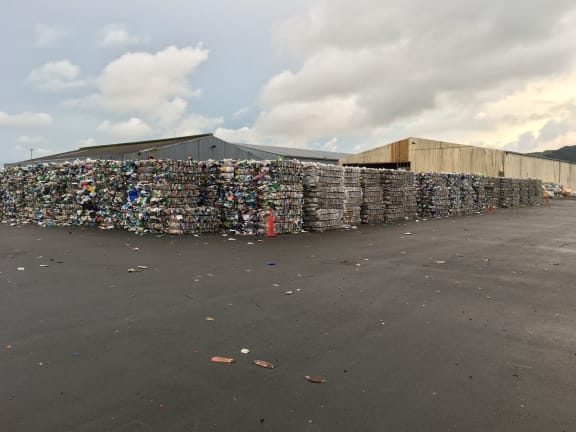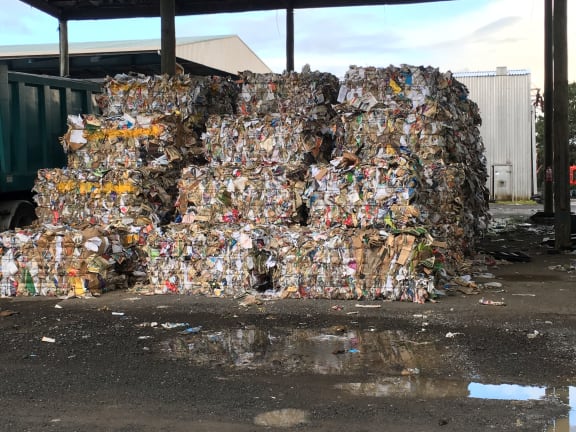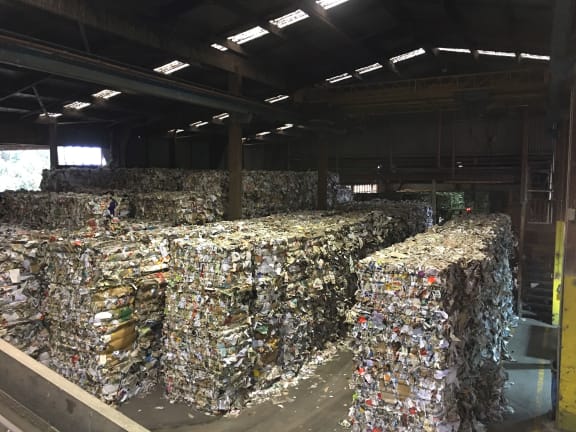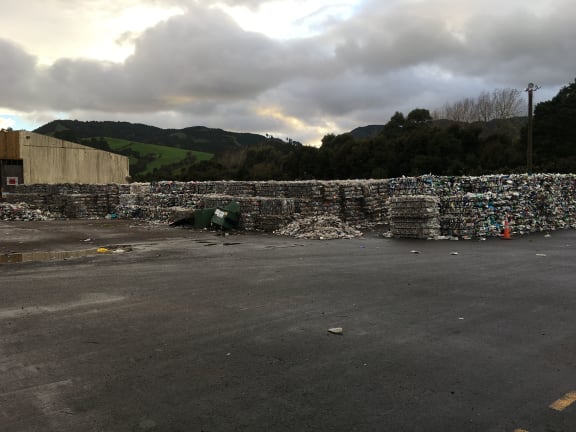Associate Minister for the Environment Eugenie Sage says she's inclined towards a ban on plastic bags, but work on the issue is still underway.
Plastic stockpile at Thames Coromandel
Plastic bags and their eco-friendly alternatives have been in the spotlight lately following Countdown's first ten supermarkets going plastic free, and The Warehouse choosing to switch to compostable bags by the end of the year.
But there are criticisms about the lack of standards around what compostable materials should be made of, and the facts that there's no nationally-regulated council recycling system for New Zealand's 15 million tonnes of annual waste.
Ms Sage told Nine to Noon the ministry was speaking to the sector to best understand what to do, and said she would make announcements on plastic bags by the end of the year.
She said the government was looking at whether a levy or a ban was the best way to phase them out.
"Personally, I'm inclined towards a ban," Ms Sage said.
She said that work was underway and a decision would be made in the next few months.
As part of this decision, Ms Sage said compostable plastic bags could also be banned because they can cause more problems than they solve if not disposed of correctly.
Plastic Stockpiles
China's recent decision to stop accepting plastic rubbish from New Zealand has left local waste companies with unmanageable stockpiles.
Ms Sage said since China's decision, some of that rubbish has been sent to Indonesia, Malaysia and Thailand but this was not a long-term solution, and New Zealand needed the capacity to process its rubbish here.
One way to do this would be to apply the Landfill Levy more widely to generate more money for councils and progressive businesses, Ms Sage said.
Currently, the levy applies to 10 percent of landfills, which only process 30 percent of NZ's waste.
Waste Minimisation Act
Ms Sage said the Waste Minimisation Act was the key piece of law the government would use to act on the issue.
And a particular focus was the product stewardship scheme where consumers and retailers take on reducing a product's environmental impact.
Ms Sage said she wanted people to think about how a product at the end of its life could be reused, rather than disposed of.
"The key answer is actually designing waste out of our economic system," she said.
Ms Sage said consumers needed to quit their plastic habit.
"Consumers looking at buying things that haven't got waste in them, telling retailers they don't want all this packaging and leaving it on the counter, sending a message back to the manufacturer."









